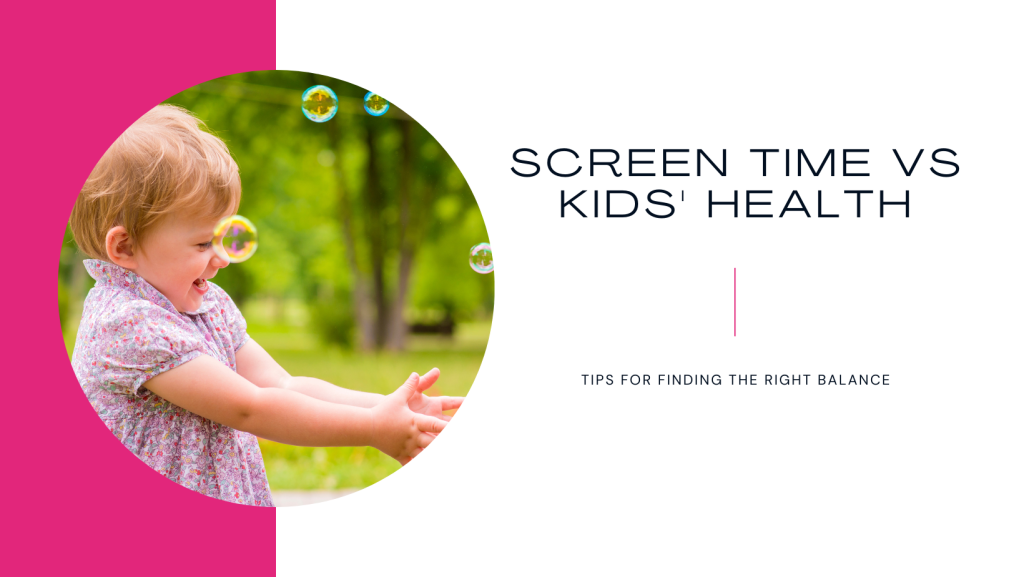In today’s digital age, managing screen time for children has become a critical aspect of promoting their overall health and well-being. While screens offer educational and entertainment opportunities, excessive screen time can have detrimental effects on physical, mental, and social health. Finding the right balance is essential for children’s development.
Excessive screen time has been linked to various health issues, including obesity, poor sleep quality, and decreased physical activity. Prolonged screen exposure can also lead to eyestrain and digital eye fatigue. Moreover, excessive screen time may contribute to attention problems and poor academic performance in children.
To strike a healthy balance, parents and caregivers should establish clear screen time guidelines and limits. The American Academy of Pediatrics recommends limiting screen time to one hour per day of high-quality programming for children aged 2 to 5 and encouraging consistent limits for older children. It’s crucial to prioritize other activities such as physical play, reading, and social interactions.
Modeling healthy screen habits is equally important. Parents should demonstrate mindful technology use by setting aside designated screen-free times and spaces for family activities. Additionally, fostering open communication about the benefits and challenges of screen time encourages children to make responsible choices.
Ultimately, finding the right balance between screen time and other activities is key to promoting children’s overall health and development in today’s digital world. By setting reasonable limits and encouraging a balanced lifestyle, parents can help children reap the benefits of technology while minimizing its potential drawbacks.




